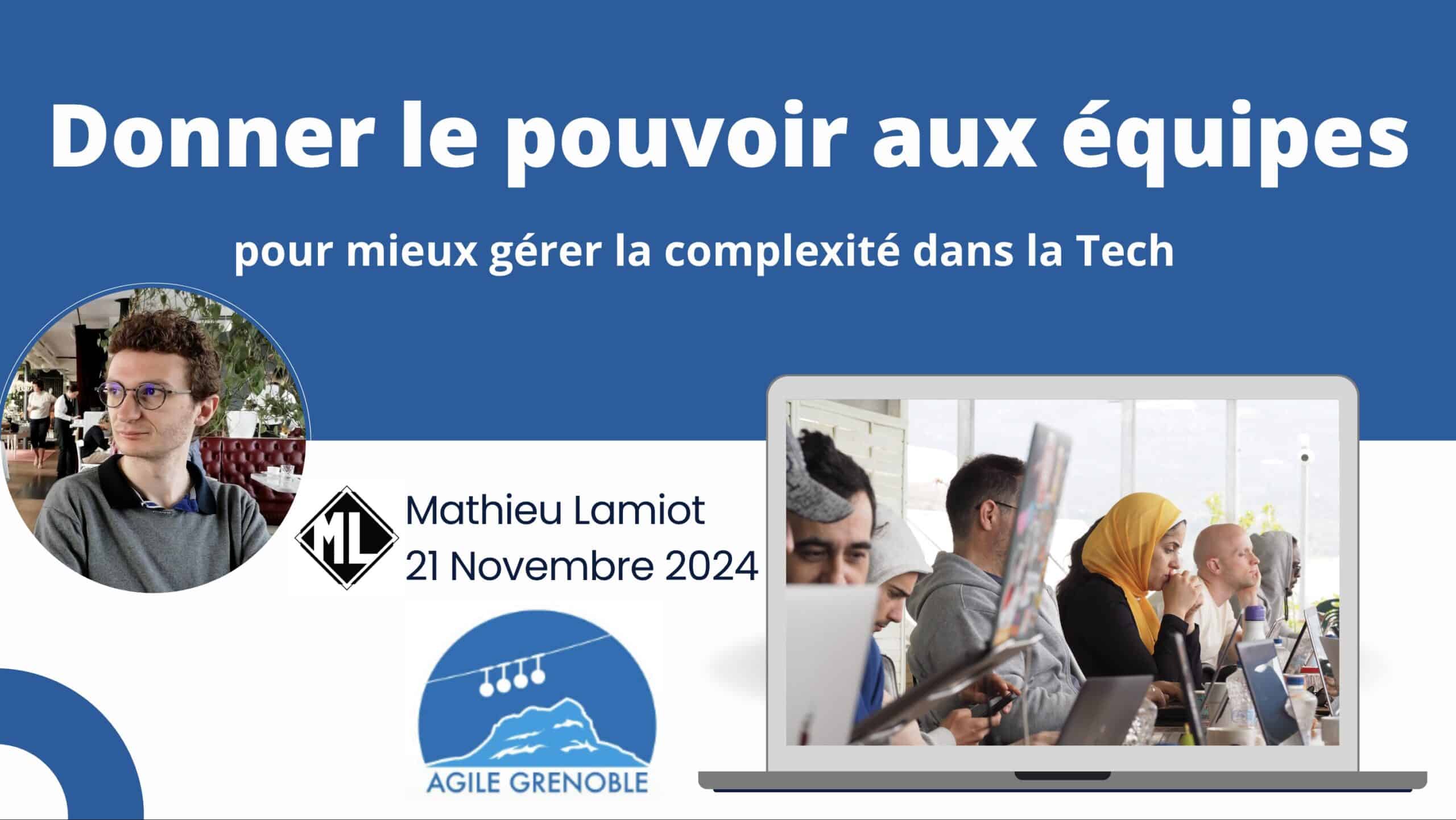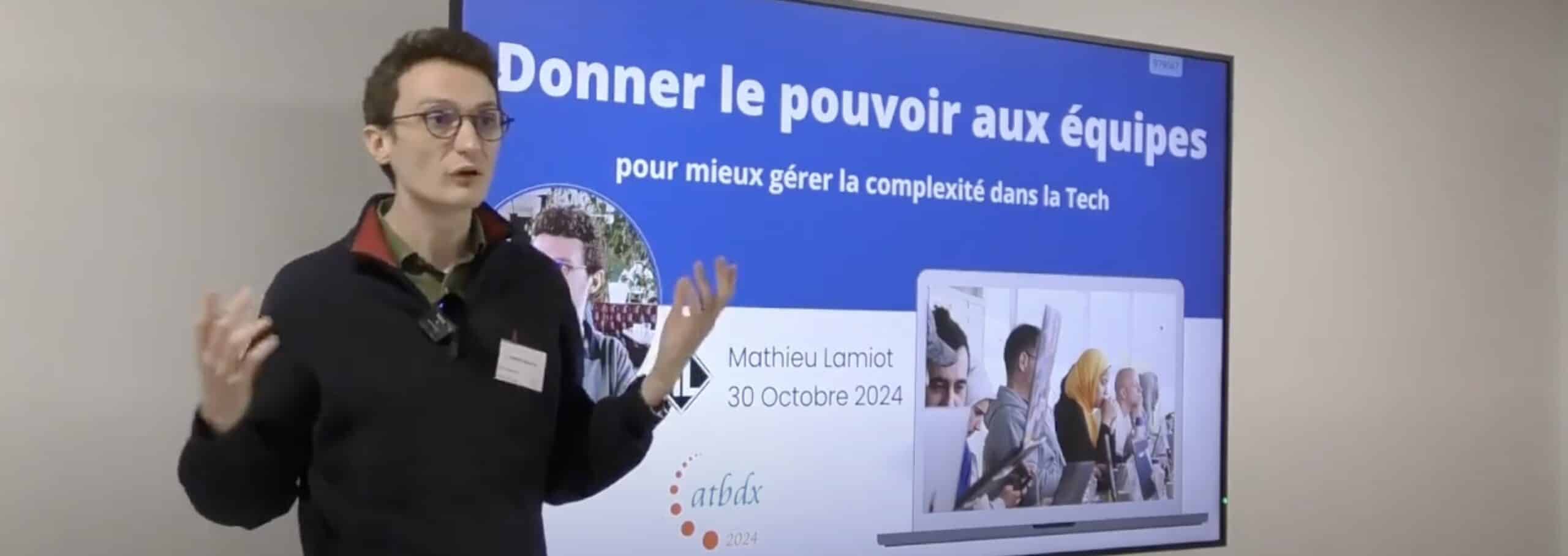Empowering teams: Navigating complexity for engineering leaders
Pitch
Who has not seen a team constantly fixing bugs but still facing more bugs? A team that struggles to release new features quickly, that doesn’t have time to maintain its stack or codebases, and even less time to experiment with new technologies? Maybe this is your current situation?
We often talk about “technical debt” as if it were inevitable. “It’s old code. Every change is time-consuming, and it breaks with every release.” Meanwhile, we see startups releasing features every week: “It’s easy for them; they don’t have any legacy.”
Is it really inevitable? I like to believe it’s not. I joined WP Media in 2023, at a time when the release pace was slowing down, each version was causing fear among the Product and QA teams, and developers were spending more time investigating bugs and finding the right approach rather than adding value to our products. Far from having solved all the problems, the teams have significantly reversed the trend thanks to a few principles and ideas that can be applied (almost) anywhere: optimized feedback loops, tactics to foster ownership and teamwork, the role of experts in teams, the self-service approach and the “diamond team” approach.
Come and discover this feedback and some proposals that might (or might not) help to unlock your team! Gain insights from practical examples and uncover the secrets that helped me to foster collaboration and innovation, and elevate team performances!
Previous sessions
-
Empowering teams talk at Agile Grenoble 2024 (French)
On November 21st, 2024, I presented “Donner le pouvoir aux équipes pour mieux gérer la complexité dans la Tech” at Agile Grenoble 2024.
-
Empowering teams talk at Agile Tour Bordeaux 2024 (French)
On October 30th, 2024, I presented “Donner le pouvoir aux équipes pour mieux gérer la complexité dans la Tech” at Agile Tour Bordeaux 2024.
Summary
This talk highlights how complexity emerges in tech organizations and presents strategies for teams to thrive in this context. After an bit of theory about complexity and ways of working, this talk builds on a real-life example of a struggling engineering organization. I unveil and reflect on methods and practices I applied to try and turn it around, throughout a year.
The talk begins with theoretical reminders about scientific management, introduced by Frederick Taylor, and delves into challenges faced nowadays in tech with this approach. Some key concepts and frameworks are introduced to help the audience grasp and analyze complexity in their own professional context (Cynefin framework, VUCA environments).
I then expose ways of working applied at WP Media when I first joined, in 2023. Through the previously introduced notions and framework, I analyze failing points in this organization and share its consequences. This allows participants to hear about an experience of technical debt and falling behind team with real-life examples. I also share insights about why technical debts can be hard to spot before it is too late.
Building on this example, I reflect on methods and strategies I introduced within WP Media’s engineering team and how they helped us to turn it around, over about a year:
- I highlight the importance of quick feedback loops in VUCA environments, how engineering leaders can build incentives to increase feedback speed and ownership, and traps to avoid. I illustrate this advice with examples of ways of working we applied at WP Media that resulted in increased collaboration and effectiveness, such as data-based and explorable SLAs, focus on ownership, automation & integrations, day-to-day organization, etc.
- I reflect on bottlenecks linked to experts and staffing that are frequently encountered, including at WP Media. I suggest a different approach to leverage expertise within a team with a platform & self-service approach, delegation through guidelines, and automation. Those approaches are illustrated with practices we apply at WP Media and the benefits we get from them. I then introduce the pyramid vs. diamond team profiles for engineering leaders to reflect on their staffing.
Main takeaways
- Scientific management
- Complexity: Cynefin framework, VUCA environments
- Real-life examples of failures & technical debt
- Feedback loops beyond AGILE & sprints
- Set the rules: explorable SLAs, automated reminders, and visual priorities
- Role of experts in scaling teams
- Platform engineering
- Self-service approach
- Pyramid vs. Diamond team
Targeted audience
While primarily tailored for tech leaders (Engineering managers, Head of engineering, VP of Engineering and CTOs), the insights discussed are applicable and thought-provoking for developers, team leaders and tech company founders and leaders.


